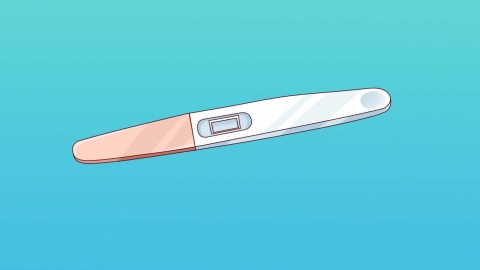How soon can a pregnancy test detect pregnancy at the earliest?
There is no such thing as "the shortest number of days a pregnancy test can detect pregnancy." Pregnancy tests usually can detect pregnancy about 7 days after a missed period, and some highly sensitive tests may detect it 3–5 days after a missed period. If the test result remains negative more than 10 days after a missed period, or if there are symptoms suggestive of pregnancy, it is recommended to seek medical advice promptly.

Pregnancy tests determine pregnancy by detecting human chorionic gonadotropin (hCG) in urine, a hormone that increases gradually after conception. In women with regular menstrual cycles, hCG levels are typically high enough to produce a positive result around 7 days after a missed period, making the test highly accurate at this time.
In cases of irregular menstrual cycles or delayed ovulation leading to later conception, even with a missed period, hCG levels might not yet have reached the detection threshold, potentially resulting in a false-negative. It is advisable to repeat the test after 3–5 days or use first-morning urine, which has higher hCG concentration and provides more accurate results.
Before using a pregnancy test, carefully read the instructions, check whether the packaging is intact and the product is within its expiration date; strictly follow the testing procedure to avoid contaminating the viewing window with urine; read the result promptly after testing, as results read after the specified time are invalid.




